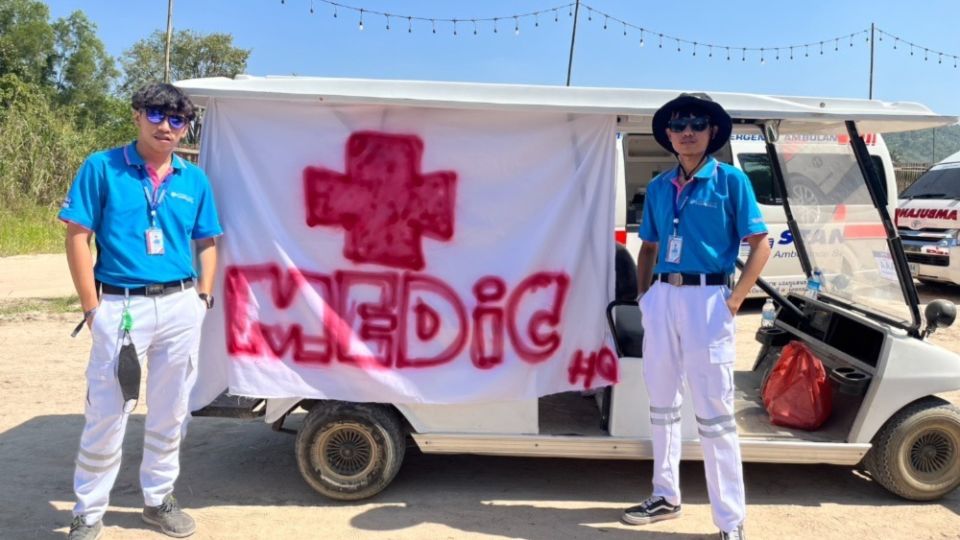There was one volunteer doctor on hand at this past weekend’s Wonderfruit Festival when 25,000 people poured in to party day and night at the Siam Country Club, where at least two died and others experienced medical emergencies.
Shu Rui Leo traveled from Singapore to attend the festival for her second time with a large group of friends. After two of them became seriously ill and unresponsive Sunday morning, they described being forced to search for help after ill-equipped festival medics refused aid.
Four days after two people died at the festival, Leo told Coconuts today that they were incensed by festival organizers’ subsequent assurances that its medical staff “assessed and treated … patients immediately.”
“In light of the timely reporting of two deaths at the festival, we were deeply suspicious and angered by the Festival spokespeople’s statements on providing aid ‘immediately,’” Leo said. “As a group of friends who needed medical help so desperately, we were literally left out in the cold to our own devices for 1.5 hours.”
Leo is among attendees sharing troubling stories in the aftermath of the festival of medical personnel refusing to render needed treatment, being unfamiliar with substance-related issues, and operating in facilities that were ill-equipped and unprepared.
Based on interviews with over a dozen attendees and first-hand reporting, Coconuts has learned of a concerning lack of critical care equipment, and a pattern of incidents that call the festival’s preparations into question.
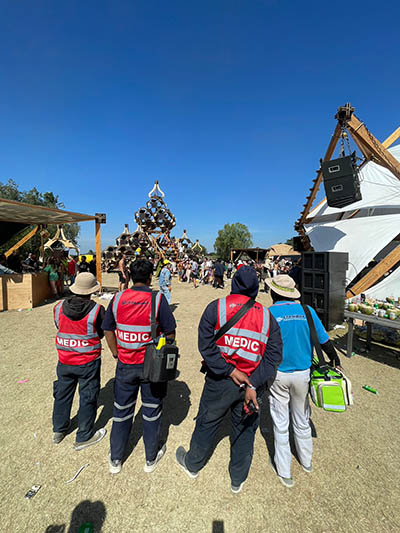
Riley See said that after developing breathing problems, it took 10 minutes to find a staffer, who pointed the way to a medical tent – but said none of the medic golf carts was available to take him there. So See had to walk another 15 minutes.
“It totalled up to almost 30 minutes before I could get medical help,” See said in a message.
At the tent, Riley said personnel did not “do a proper assessment of my condition (what might have happened, what I ingested), and simply gave an antihistamine to keep the swelling down. Drug interactions can be fatal and they didn’t consider that as a possibility.”
Altogether, the private emergency services firm contracted by the festival said it fielded five ambulances, an unidentified volunteer German doctor, and about 45 medical personnel that included EMTs, nurses, and paramedics to tend to emergencies across the sprawling, 50-hectare expanse where the massive festival unfolded around the clock for four days.
And emergencies there were. Over the weekend, medical personnel were frequently spotted walking through the fields to evaluate or render aid to attendees who had lost consciousness or required help. Some were carried off; some regained consciousness and were monitored.
After the deaths of veteran Bangkok DJ Guillaume Wyss and Indonesian national Kimo Rusna on Saturday, we had many questions for the festival about its facilities, preparations, and readiness. We wanted to know what time they were notified of their situation, what time medics arrived on the scene, how many minutes they provided CPR, what that aid consisted of, and how long it took to get them to the hospitals where both men were pronounced dead. In short, did the festival do everything possible in those precious minutes?
It’s no secret that many people go to large music festivals to take powerful party drugs such as MDMA, LSD, Ketamine, cocaine, psilocybin, and benzodiazepines such as GB2, despite the fact most advertise a no-drugs policy. Cannabis, which is not associated with health emergencies, was not an issue as it was fully decriminalized in June.
That people fall ill is to be expected, as is that those paying large entrance fees – Wonderfruit tickets ranged from THB6,000 (US$170) to THB15,000 (US$430) – will be afforded prompt, qualified emergency medical care by organizers.
‘I think it was at night’
Coconuts wanted to find out what time those who died Saturday were found, when their emergencies were reported, what aid they were given, and how long it took to get them to the hospital.
After initially replying to questions Monday, Wonderfruit representatives declined to respond to more on Tuesday, saying “we’d like to inform you that while we continue to assist authorities with their inquiries, everything we’re currently at liberty to say is contained in the previous statement.”
At least 2 revelers confirmed dead at Wonderfruit Festival
In that statement, sent in writing Monday, a Wonderfruit spokesperson said they were “deeply saddened” to learn that two attendees had died and that both men “had been very quickly brought to the attention of on-site medical staff, who assessed and treated the patients immediately” before offering their “thoughts and prayers.”
“Wonderfruit prioritizes safety and security by ensures that all safety and security measures are in place while continue to remind attendees to be mindful and staying safe,” ended the statement from festival spokesperson Chatchai Saengpetch.
Pressed to be more forthcoming late Wednesday afternoon, the festival said it would try to answer questions the next day.
Reached by phone for information about its response to Wyss’s emergency, the manager of Standby Ambulance Co., Ltd. in Pattaya, which Wonderfruit contracted to provide medical services, said he thought “it was at night.”
“I don’t remember the exact time when we found the body. I think it was at night,” he said, declining to give his name. “We were so busy with many incidents. People were getting into accidents, and we were attending to so many people throughout the festival, every day.”
He said all their staff are fully trained medics. Asked if they have experience treating people for drug use, he said that the team “has worked in hospitals.”
As for when Wyss and Rusna were found, and when they arrived at the hospital, the manager said that they could not answer those questions because they did not keep any records.
Asked how many festival attendees had died, he declined to say. As for the credentials of their one volunteer physician, he said Standby doesn’t check their backgrounds.
Rumors continue to circulate that upward of four people died at the festival, but Coconuts has not found any evidence to support that.
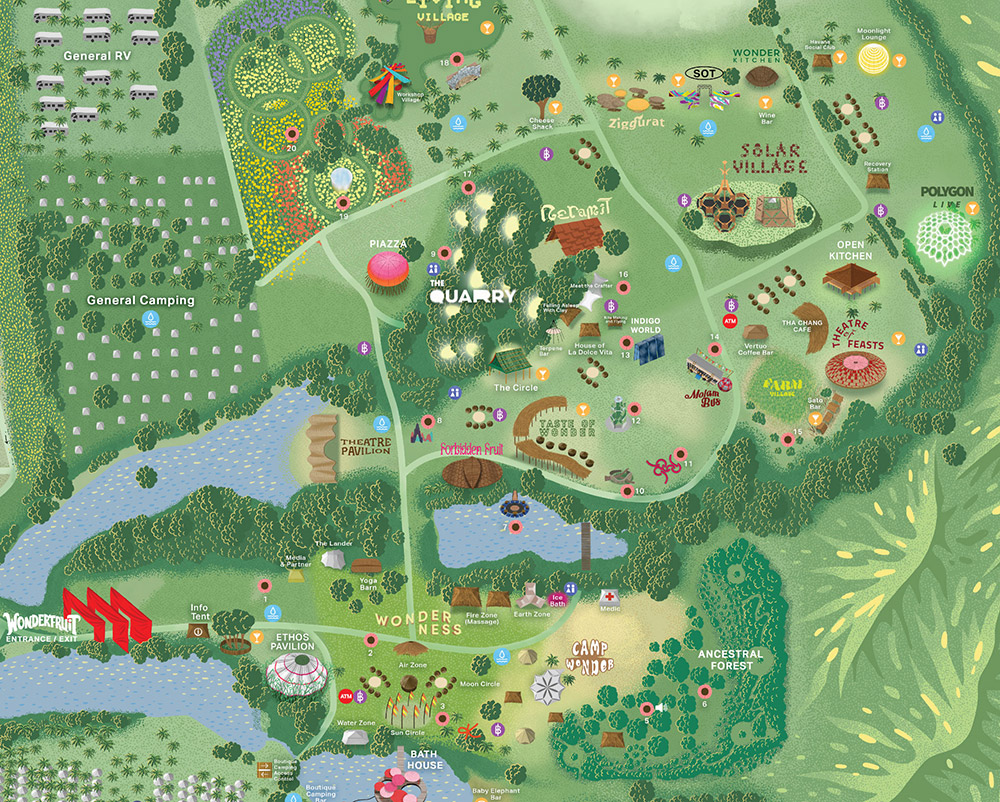
Great thrills, fatal consequences
Wonderfruit is a lifestyle and music festival that usually takes place every December, drawing crowds in the tens of thousands. This year’s edition, the seventh since 2014, took place Dec. 14-18 southeast of Bangkok at the Siam Country Club in Chonburi province.
Spread over a large expanse of gently sloping fields, the festival features daytime events that range from discussions on sustainability and design to crafting workshops. The festival featured camping areas, many food booths, and more than 14 stages with a diverse range of music genres.
Medical emergencies are common at large festivals, and fatalities occur. Six people died of heat stroke in 2014 at The Future Music Festival held in Malaysia. Three others died at the 2014 State of Trance festival in Jakarta, which the authorities blamed on drug overdose, according to The Jakarta Post. In 1999, hundreds were treated for dehydration due to lack of access to drinking water at the Woodstock ‘99 festival held in the U.S. state of New York. One died.
The introduction of illicitly made fentanyl, a powerful synthetic opioid secretly added to low-grade narcotics to make them feel more powerful has been killing, in one conservative estimate, tens of thousands of people around the world annually in recent years. Such overdoses can be treated with naloxone. We do not know if any was stocked by Standby.
See said that festivals that knowingly cater to people bending their minds with psychoactive drugs need to be prepared to take care of them.
“Festivals need more proactive, drug-related care, not just people who are only good at treating superficial physical wounds,” See said. “People are going to be disoriented and uncomfortable, either from the harsh weather, the drug and/or alcohol consumption, or both, and they need empathetic care and assurance that they’re in safe hands.”
That preparation needs to happen even if drugs are nominally disallowed, See noted. Party drugs remain illegal in Thailand – except for cannabis and a local stimulant called kratom – but are readily available.
“Regardless of regulatory and legal stance on drug consumption, there are human lives, and there should be available specialised care to prevent drug-related hospitalisations, or even deaths,” See wrote.
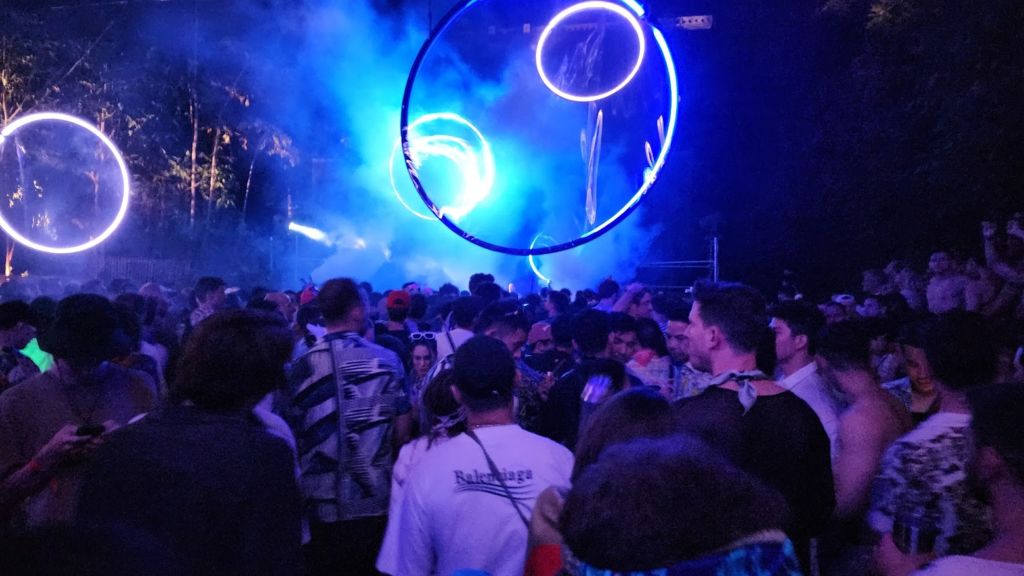
‘Stay hydrated’
The party drugs revelers take can not only accelerate dehydration as people dance for hours on end, but leave them disoriented and unaware of their condition. The ability to communicate verbally or even read a map may become very difficult.
That’s why one of the most critical safety issues at any large festival or dance party is hydration, and easy access to drinking water.
“It’s hot out there—stay hydrated, and stay cool,” the festival wrote Saturday, within hours of both deaths. “Drink water as often as you can; we can’t recommend it enough. You’ll find free refill stations all over The Fields.”
But some of the festival’s policies, driven by its commitment to a sustainability ethos, seem to have undercut that message.
It banned single-use cups at its last edition before the pandemic in 2019.
“If you don’t have a reusable cup, you won’t be able to order a drink,” the festival announced in November. “We also did this in 2019 and are proud of its success. In fact, just 42.3% of attendees purchased a cup from Wonderfruit, meaning that more than half of the audience brought their own cup to Wonderfruit, and nobody felt inconvenienced at all.”
That meant attendees are required to retain possession of their own cups throughout the duration. Abandoned cups could be seen throughout the event, and many attendees could be seen without one.
The festival provided no free water at its stages – and charged THB600 (US$17) for a Wonderfruit-branded cup. Disposable cans of water could be purchased for THB60.
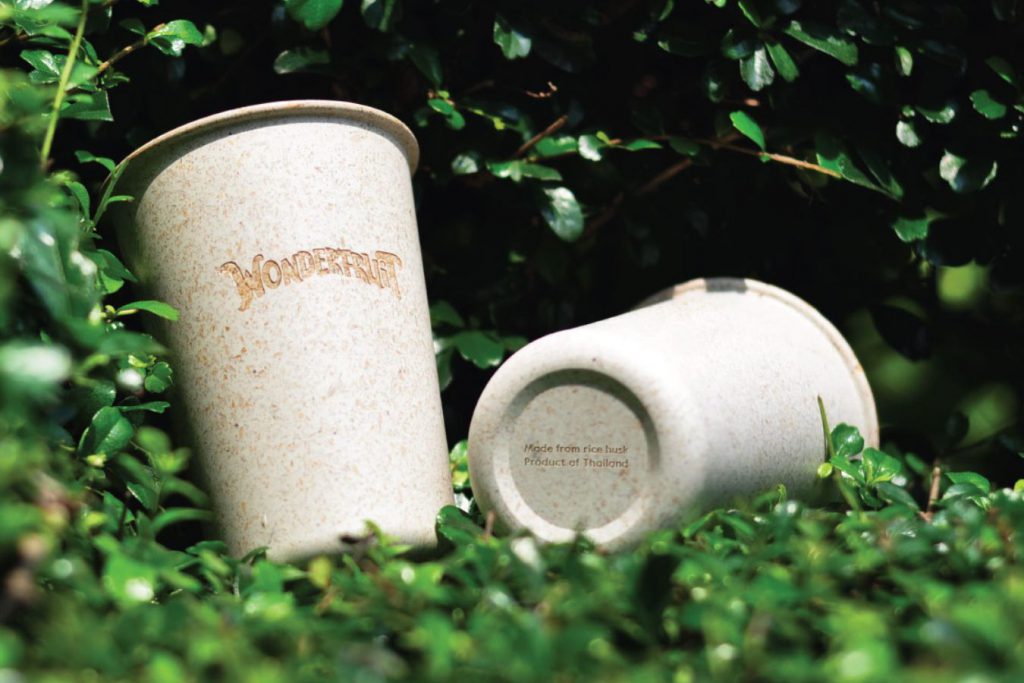
There were seven water refilling stations across The Fields, but they were poorly lit and difficult to find. No apparent signs were seen at venue entrances directing attendees where to find water.
The hundreds to thousands of people packed onto overcrowded dance floors had to exit the venue and go search for refilling stations.
“You literally had to trek for 10 minutes, all that in really cold wind,” said Michelle Koh, one of Leo’s friends, referencing the sudden plunge in temperatures as a continuous, strong wind picked up in the early hours of Sunday and continued into the morning.
‘We knew we were in trouble’
It was about 7am at the Solar Stage, where people gather every morning to dance in the dawn, that two of Leo’s friends “started going cold, turning pale, and eventually became unresponsive.”
While Leo and friends said they had not been using any party drugs, some of them had consumed too much alcohol. One of their friends has a hormonal imbalance.
“I think they both started to look really sleepy and slumped over,” they said. “At that point, all of us were really cold. We were sharing outerwear. When they became droopy-eyed and unresponsive, that’s when we realized that we were in trouble.”
Leo ran to find a staffer and said a medic arrived on a buggy within 10 minutes and took them to the medical tent – actually a shipping container – located a short ride from the stage near the Polygon stage. Two of Wonderfruit’s four medical sites were located there, another was centrally located between The Quarry and Forbidden Fruit stages. The fourth was located behind a distant RV camping site.

“When we entered the medic container, we knew we were in trouble,” Leo said.
Six people interviewed who entered a medical tent during the festival said they saw none of the expected emergency medical equipment such as defibrillators, IV stands, or CPR masks.
“The container was very barren,” Leo said. “Mostly the medics’ things. On the table was a bottle of saline and iodine and gauze and plasters. It seemed like they had stuff for cuts and grazes. I would expect to see ice packs if you’re conducting a fest in the blazing tropical heat. For us, what we needed were blankets or heat packs or isotonics, something that would help our friend do better. Again, they didn’t administer any of that. It resembled nothing of a clinic.”
Only one stretcher bed was vacant; the other one was occupied by a sleeping medic. Another attendee was lying immobile under a table. They put one friend on the stretcher and the other in a chair.
Due to the very cold weather conditions, “both friends were very cold,” despite being indoors.
“We asked if they had blankets and the medics stared blankly at us. We collected pieces of clothing to put on our friends. At this point, the only available items we could use from the medic container was a bath towel,” Leo said.
They asked for a doctor and said a woman identified herself as a nurse who would treat them.
“We asked for her diagnosis, and she said our friends are okay and just needed to ‘go to sleep.’ We could see that they were visibly not okay and unresponsive. They were pale in the face and their toes were blue. We asked if there was anything we could do and she said no,” Leo said. “Despite repeatedly asking for a doctor, no one even examined any of them. All medic personnel insisted that our friends would be fine after they woke up. A few other medic personnel came and left the tent. They dismissed us each time we tried to ask them for help.”
One of the friends then ran out to find their own water and a sweet drink to rehydrate their friend. They said medics were unhappy when they used one of their kettles to boil water.
“We continued plying them with requests – for a saline drip, more blankets, more resources – but were refused all requests,” Leo said.
That’s when they remembered that a group called Lyfe Wellness was offering an IV drip station at the festival. In promotional materials, the group, which operates an IV drip lounge in Bangkok’s Silom area, said its “registered healthcare professionals are back to help you prepare for four days and nights of wonder, with vitamin drips and shots to restore and recover from the inside out.”
Leo and friends rushed to the IV Lyfe location and waited 90 minutes for personnel to arrive, as it only operates within advertised hours. After staff showed up, they said a nurse rushed back to the medic tent “fast, hurried, and concerned” at around 8:45am.
“She said our friends were dehydrated and low on sugar, and she asked if we had been given electrolytes, which we had not. She said the medics should have given us some, and after rummaging through their station, we found some packets. We immediately started mixing the packets with water on our own and giving them to our friends to drink. Our friends immediately looked better, and the nurses recommended we do a hydration IV drip,” Leo said.
Leo said that after they arrived back at the medical tent with the IV Lyfe nurse, festival medics began arguing with her, saying she must stop the IV drip because they were afraid of liability concerns. After the drip began, Krystal Goh, another member of Leo’s entourage, said the festival medics ordered them out of the tent because their friends were awake.
“They insisted that he sit outside and do his IV there,” they said. “After it started, they chased us even further. They expected him to walk to the recovery station, IV line still in him.”
“At this point our friends were still feeling very cold and we pleaded with the medics to let them stay,” Leo added. “All this fell on deaf ears.”
It ultimately took them about two hours to get the urgent rehydration treatment they needed.
“The entire ordeal in the medic tent lasted 1.5 hours before the IV station opened,” Leo said. “In that 1.5 hours so much could have happened and we truly feared for the worst.”
In reply to Wonderfruit’s Saturday Staying Safe post, which also advised attendees to “stay nourished,” look after their friends, find shade, and take breaks, Leo wrote a comment Sunday angrily disputing its characterization of the medical facilities.
“How dare you say your medic tent is fully operational when there are no supplies in the tent at all,” they wrote. “Not even blankets. No treatment to administer to people suffering from hypothermia in the night. No treatment for dehydration which is to be expected in the heat.”
They said the comment appeared to be deleted as of Tuesday.
‘There’s no time!’
Little is known about the circumstances around the two men who died at the festival, though they were rumored to be acquainted. Local police said they were investigating their deaths.

Coconuts has pieced together a partial timeline for Wyss’ emergency through interviews with witnesses, police and hospital personnel. He was seen walking alone at about 4am outside The Quarry, one of the festival’s many themed party venues. He appeared exhausted.
Leo, Goh, and Koh said they were resting outside the Forbidden Fruit venue and saw someone attempting CPR. Based on their phone records, they believed it was 4:30am.
“We had a very clear view of what happened. Suddenly, we saw a shirtless man on the floor lying down and someone was giving him CPR,” Koh said. “Shortly after, a bunch of people came, and the medic buggy arrived and put him in the buggy. People were shouting, ‘Let’s go! Let’s go! There’s no time,’ and they drove off.
At that time on Saturday morning, a vehicle driving from the festival to Bangkok Pattaya Hospital would take 20 minutes to 30 minutes, depending on the route.
On Sunday, the shift supervisor at Bangkok Pattaya Hospital, who initially denied having any knowledge of such a patient, told Coconuts, when pressed, that Wyss arrived at the hospital at 5am. That would be roughly 30 minutes after he was placed on the buggy.
A safer festival
When it comes to safe festivals, experts always return to easy access to water.
MgGowan Allied Specialty Insurance in the U.S. state of Florida, has been insuring large-scale entertainment events, large festivals, and theme parks for 35 years.
“Like emergency exits, water stations should be plentiful and easily visible to attendees,” the firm wrote. “Consider identifying these locations on any maps. How will attendees access the water? Consider distributing refillable cups or water bottles as guests enter the event.”
Wonderfruit is not the only festival hosting large numbers of people in a difficult environment. Though the Burning Man festival held annually in the U.S. state of Nevada is much larger – 80,000 attended this year – it also takes place in a challenging environment where temperatures can run over 40C and fall below freezing at night.
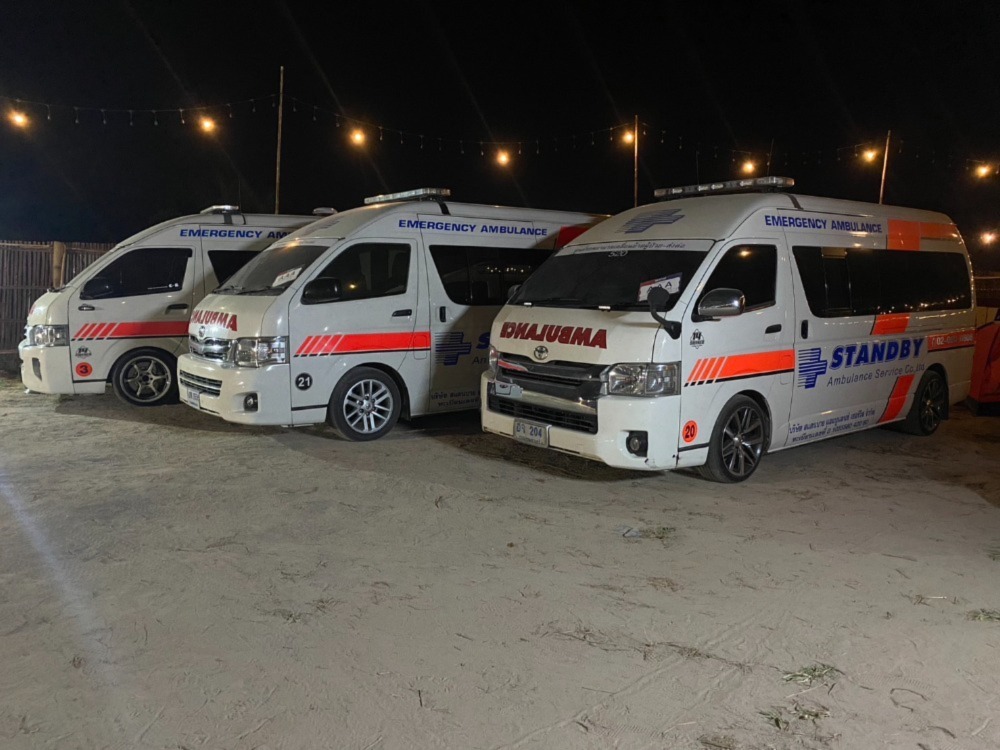
Burning Man says that it contracts licensed doctors and nurses to do first aid and triage, and recruits a large roster of medically qualified volunteers.
Its Emergency Services Department operates three medical stations staffed by registered nurses, medical doctors, physician assistants, and nurse practitioners. It also offers mental health services and people trained to respond to sexual assault.
It fields five quick response vehicles to quickly answer calls and evaluate whether patients require an ambulance. A vehicle providing first aid and water is also dispatched to every major event, and all venues have “rapid intervention teams” equipped with life-saving equipment.
A quiet “sanctuary” is set aside for patients who are stable but need to remain under supervision.
Goh, Leo, and Koh said that the festival needs to live up to the “wellness” rhetoric that it promotes as its ethos.
“Where is the accountability and integrity of the organizers who place first aid in the hands of these people who neglect those who came for Wonderfruit?” Leo said. “Where does the intention to silence and shirk responsibility come from? If it had rained that night at 18 degrees, so many more people would have been affected. The medics are ill equipped and negligent, and that speaks volumes to how unsafe it actually was. Is wellness and sustainability really your values when your community is treated like a liability instead of valued human life?”
They left the festival Sunday because their experience “was so traumatic.”
Asked if they would return next year, all three replied in unison: “No.”
Update: An earlier of this version attributed Wonderfruit’s statement to a publicist for Dutch dairy company FrieslandCampina. The festival requested that it be attributed to spokesperson Chatchai Saengpetch.
Additional writing and reporting Nicky Tanskul
